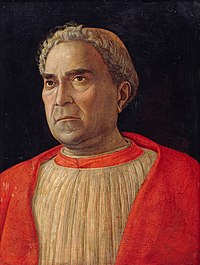Cjargna
This article is incomplete because it is pending further input from participants, or it is a work-in-progress by one author. Please comment on this article's talk page to share your input, comments and questions. Note: To contribute to this article, you may need to seek help from the author(s) of this page. |
Lordship of Cjargna
| |
|---|---|
| View of Cjargna (red) in Aleramia (yellow) View of Cjargna (red) in Aleramia (yellow) | |
| Capital and largest city | Damar |
| Official languages | Carnian Oronese |
| Quarter: | |
| Government | |
| • Heads of state | William XXIII (Lord of Cjargna) Zuan Bomben (Archprelate of Damar) |
| • Executive | Consulate (5) |
| • Legislative | Parliament (103) |
| • Grand Council | 15 (of 351) |
| • Delegazion | 6 (of 84) |
| Population (2018) | |
| • Total | 1,928,301 |
| • Rank | 12th |
| Demonym(s) | Cjargnese or Carnian Cjargnel/a (Carnian) Carnés/a (Oronese) |
| Abbreviation | CJ |
| GRP | 50.756 billion (13th) |
| GRP per capita | 26,322 (14th) |
| HDI | ? () () |
| Website | Guvier di Cjargna |
Cjargna (Carnian: Cjargna, pronounced ['car.ɲa]; Oronese: Carnia, pronounced ['kar.nja]), officially the Lordship of Cjargna (Carnian: Segnorie di Cjargna, Oronese: Signoria de Carnia) is one of the 14 provinces of Aleramia situated in the north-eastern part of the country. Cjargna is separated from neighbouring Ardaima by the Dan Mountains, and it borders the provinces of Umlena and Roe to the west, and of Garbagnes to the south. Cjargna is the xth largest province in Aleramia, with an area of ? km2 (? sq mi) and the 12th largest population in the country with a population of over 1.9 million people. The capital and largest city is Damar.
Cjargna is the poorest province in the country in per capita terms, with a regional income that is 65% of the national one, at $26,322. The province is fairly rural with agriculture, particularly cattle raising, playing an outsized role compared to the rest of the country. Recently, Cjargna has become a popular destination for ecotourism and skiing.
Cjargna is the sole bilingual province in Aleramia, having two co-official languages, Oronese and Carnian. Carnian is the mother language of 89% of the population, and it is the main vehicle of communication in Carnian schools, government and the provincial press. Cjargna is also the second most religiously-diverse province in the country, as over 17% of the population, or 0.3 million people, identify as Gianavellists. Paradoxically, Cjargna's has a joint head of state, the Monarch of the States of the Aleram as Lord of Cjargna, but also the Orthodox Alydian Archprelate of Damar, currently Zuan Bomben.
History

Cjargna has been inhabited since prehistoric times, with the earliest archaeological evidence of human settlements dating back to the Middle Paleolithic period (around 45,000 BCE). There is also evidence of more developed human civilisations already in the Mesolithic, with the construction of megalithic structures in xx as well as dolmens in xx.
Geography
Climate

Government and politics
Cjargna operates as a semi-parliamentary system with a collective executive known as the Consulate and a unicameral legislature, known as the Parliament. The constitutional framework of Cjargna is the 1979 Constitution of Cjargna and the 1442 Devotio of Grimàc. The 1979 Constitution defined the division of powers, territorial organisation and competences of the province, replacing the 1865 Constitution. The Devotio sets out and codifies the relationship between the two Lords of Cjargna as well as the terms of the province's integration in Aleramia. Like the other provinces, Cjargna is responsible for its own welfare state, social services, law enforcement and court system.
Executive power is formally detained by the two Lords of Cjargna, the heads of state of the province. The two Lords are the Monarch of the States of Aleram, currently William XXIII and the Archprelate of Damar, currently Zuan Bomben. The Aleramic Monarchs have historically named a representative, known as Deputàt dal Regn to serve in their stead as one of the two ceremonial heads of state of the territory. The current Deputàt is Zuan Bomben.
The Consulate (Consulàt in Carnian, Consolà in Oronese) is the collegial head of government, exercising de facto executive power. The Consulate is formed by five members, known as Consuls (Consul, Consol). All five members are elected simultaneously every four years through a direct election at the same time as the legislature. Unlike at the federal level, the five consuls they can be dismissed by the legislature, triggering an early election. The Consulate's presiding officer, known as First Consul, rotates between the five members. The current First Consul is xx (Carnian League). The other members are xx (LC), xx (PRD), xx (PSU) and xx (PCCI).
The Parliament (Parlament) is the unicameral legislature of the Lordship. The Parliament is formed by 103 members, roughly one member per 18,000 citizens, for four-year terms of office elected by open list proportional representation elected from the province's 12 dioceses (Diocesi, diocesis in plural).
The province has a two-tiered court system, consisting of district courts and a provincial Supreme Court (Carnian & Oronese: Cort Suprema). There is also an Administrative Court (Carnian: Tribunàl Ministratìv; Oronese: Tribunal administrativ) as well as other specialised courts and judicial boards.
Subdivisions
Economy
Infrastructure
Demographics




